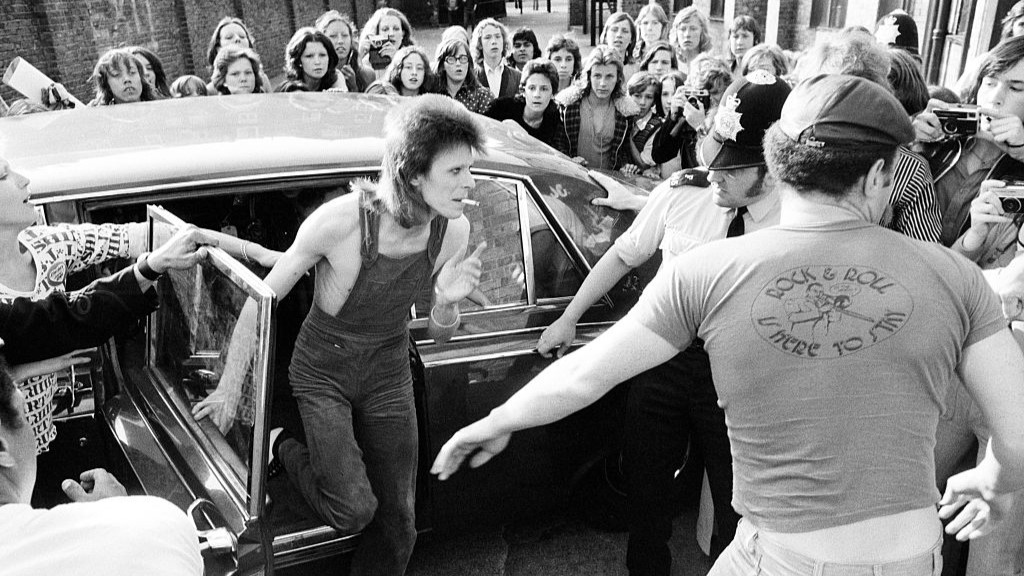Matthew d’Ancona asks, “What’s the point of Keir Starmer if he won’t confront Suella Braverman on immigration?” (TNE #341). The point of him is to maximise the Labour vote.
After the disaster of Jeremy Corbyn, we have one goal, winning. Once in power, we can change things but the route to No 10 is paved with Tory culture war traps. Personally I am glad he is avoiding them.
Vicky Cepel
Via Facebook
The point of Keir Starmer is to get elected and rid Britain of these incompetents and ideologues. He will change in power, but only in power do you get the chance to change the country.
Sarah Hughes
The answer to the question, “What’s the point of Keir Starmer?” can be found a few pages in on issue #341, in the Barack Obama statement quoted by Alastair Campbell in his book extract: “This idea of purity, that you’re never compromised, always politically “woke” and all that stuff – you should get over that.”
Matthew Fox
Starmer is simply rebranding Labour as a business-friendly entity. He has no plans to improve the lives of UK citizens. Sad really.
Benedict Marshall
Vote winner
Alastair Campbell’s “How to change the world” (TNE #341) was a perceptive look at why the People’s Vote campaign failed. While conflicted from the start about effectively asking voters “are you sure?”, I ultimately supported it because I believed it represented the best chance to turn back from the Brexit damage our businesses, institutions and citizens are now suffering. There was clearly a risk, but it had to be tried.
The risk delivered the worst possible outcome – a Boris Johnson near-landslide. Yet it also delivered the instrument of Brexit’s destruction – a terrible, ideology-driven deal with the EU that made a bad situation worse and which Rishi Sunak is now trying to unpick.
Given what has happened since, I think history will remember the PV campaign more fondly than any of us could have imagined in December 2019.
H Joyce
Ipswich, Suffolk
Stuck in a hole
The only way to start to repair “Britain’s £220bn black hole” (TNE #341) is to elect a new government. They have bled the country dry and still have another year to do even more damage. It is utterly heartbreaking.
Jane Sandford
Via Facebook
Horror Tories
Despite the “Bring Back Boris” campaign mentioned by Mandrake (TNE #341), there are still honourable people in the Tory party who are not allowed to rise. The so-called National Conservatism has purged the decent Tories – I did not agree with them ideologically but at least they were honourable people. If, like Dominic Grieve, you were neither a liar or corrupt, it seems that you had to go.
Lorraine Schneiter
Double cream
Are you trying to kill off your readers? Two litres of cream in a celeriac recipe for two people?
Dagnija Innus
Penryn, Cornwall
Josh Barrie writes: Apologies for an error here, which was not the fault of Tom Cenci. The recipe calls for one litre of double cream – which reduces down significantly – and it serves up to four people.
Self control
No doubt Will Self thinks he is funny but the schoolboy humour he showed in his description of the coronation (“Royal reading”, TNE #341) was snide and “Self” congratulatory. This was a trivial waste of space I would not expect from your usual incisive and thought-provoking journalism.
Betty Rider
North Chailey, Lewes
Will Self has misinterpreted the “decline” in reading comprehension supposedly reported by Prof Keith Topping and colleagues from the University of Dundee and elsewhere (TNE #339). Their data does show a drop in comprehension from primary to secondary school last year, and this pattern has repeated over quite a few years, Keith Topping tells me.
BUT that does not mean that levels of reading comprehension have dropped – that would require evidence from nationally representative samples of pupils monitored at intervals over periods of time, and cannot be judged from the Renaissance Learning samples of self-selected schools and their self-selecting pupils reading their personal choices of books. Given the history of Accelerated Reader’s use as a remedial programme, it is entirely possible that progressively only poorer and poorer readers use it as they go up through their school years.
Greg Brooks
Emeritus Professor of Education, University of Sheffield
Giger counter
“Unclouded by conscience, remorse, or delusions of morality.” I confess to thinking I had stumbled upon another analysis of a former prime minister when reading about the villain of the eponymous Alien films (Great European Lives on HR Giger, TNE #340).
My wife and I visited Gruyère some years ago. Giger’s Alien-themed café bar there was a breath of fresh air in a picturesque, Swiss, medieval hilltop town otherwise littered with chocolate box, Sound of Music-style cafes staffed by young women in milkmaid costumes. Conversely, as Charlie Connelly suggests, a visit to his museum demonstrates how profoundly disturbing Giger’s art can be.
Richard Segall Jones
Tunbridge Wells, Kent
Burning issues
Charlie Connelly’s “The war against reading” (TNE #340) is timely.
How many of us thought that the generally upward trajectory of liberal and open-minded sensibilities in western democracies over the last few decades would culminate in the burning of children’s books about a teenage wizard?
Occasionally on the grounds of “demonic influences” other times on the author’s supposedly controversial opinions on trans rights.
I hope these pyromaniacs at least had the ingenuity to conjure the “incendio” spell to ignite their literary bonfires.
David Coombs
Corby, Northants
President Windsor?
Your scenario for the possible emergence of president Boris Johnson (TNE #339) is certainly plausible. Equally possible, though, is the emergence of a compromise candidate to “stop Boris”. A fellow old Etonian, so “Floreat Etona either way” as Jacob Rees Mogg might say.
Media savvy with a less colourful domestic life than Boris but no obvious links to any political party, he has a strong campaigning record on environmental issues and easily outperforms Boris in the TV debates. His attractive wife campaigns strongly on his behalf and he beats Boris. Step forward president William Windsor!
After a successful first term he is re-nominated with all-party support and no serious opposition and easily re-elected. Talk turns to the possible restoration of the monarchy.
Ed Kelly
St Helens, Merseyside
Basket Käse?
In “Britain, the Brexit basket case” (TNE #339) Jonty Bloom bemoans the increased costs and paperwork for food shipments between Britain and the EU, noting that “a third of British exporters stopped exporting when the EU introduced checks in 2021”.
That made me stop and think: two thirds went on exporting. At our local street market, a cheesemonger with outlets throughout Berlin is selling English Cheddar and Colston Bassett Stilton at prices much the same as they were when we moved from the UK in 2018. Maybe high demand keeps British cheese on German tables.
Michael Berridge
Berlin, Germany
Denying justice
I liked Everyday Philosophy on Compassion (TNE #339), in which Nigel Warburton reminded us that the great philosopher Humpty Dumpty uses the nice knock-down argument, “When I use a word it means just what I choose it to mean – neither more nor less”.
At least until Suella Braverman’s evil Rwanda policy has been tried and failed, we can’t tell if she has chosen her own unique meaning for compassion. She may retain something like our shared conception of compassion as assistance through synthesis of empathy and sympathy by use of many a tyrant and disciplinarian’s adage, “You’ve got to be cruel to be kind”. She thinks further imperilling the rights of people coming here will stop people risking getting here by crossing the Channel.
Braverman cannot be acquitted of all crimes of word misuse. She can’t fairly define her Illegal [sic (and sick)] Migration Bill as justice, since, by its own definitions it denies justice. It would aid and abet slave masters and people traffickers and obstruct police in the pursuit of justice by punishing, without trial, and eliminating by forced deportation, the victims, and therefore witnesses, of these crimes.
Roland Lazarus
Billericay, Essex
Right is wrong
My father, Walter Ullmann, was a 1938 refugee from Nazi Austria and an eminent medieval historian. He is held in great esteem and considered one of the greatest British historians from the last century.
He is well honoured at Trinity College, Cambridge, where his plaque is to be found in the chapel alongside other eminent Austrian academics such as Ludwig Wittgenstein. King Charles is quoted as saying that his lectures were the only ones worth frequenting.
We have expended considerable effort to organise the installation of a plaque in his memory on the house where he was born and bred on the main street in Pulkau in Lower Austria. It will be formally unveiled on May 29 as part of the Whitsun festivities.
But we have a problem: from the outset, I have involved the British Embassy and the British ambassador. Initially, we received full support from the then ambassador, Leigh Turner, but his replacement, Lindsay Skoll, is less than enthusiastic and has excused herself from attending. She also is refusing to send any representation to the event.
Is this a sign of a far right government adrift, or what?
Carl Nicholas Ullmann
Sue Reid
Your depiction of my work was inaccurate in the recent New European article entitled “Hate Mail” (TNE #336).
The article specifically referenced my lengthy feature on the protest in Knowsley, near Liverpool. It inferred that I ignored migrants at the Suites’ hotel where the protest took place, and that I only reflected the views of disgruntled locals.
In fact, I believe I am the only journalist to have interviewed migrants who were inside the hotel on the actual protest night. I was introduced to them by a migrant friend who came over to Britain from Calais in a kayak, and lives elsewhere in Liverpool.
I reported high up in the article their views: that they had been frightened, felt there was hatred against them, but they were pleased to be living in the hotel where the food was good and rooms large.
In the case of the kayaker, I quoted him specifically as saying the riot had made him distrustful of Britain and he wanted to return to France. He has since sent a message to me saying he was pleased with the article.
Your writer also wrongly says I failed to endorse or investigate the claim that the left blamed the right for the disturbances. I did so, and those claims were featured at length in the article.
Sue Reid
Daily Mail special investigations editor



